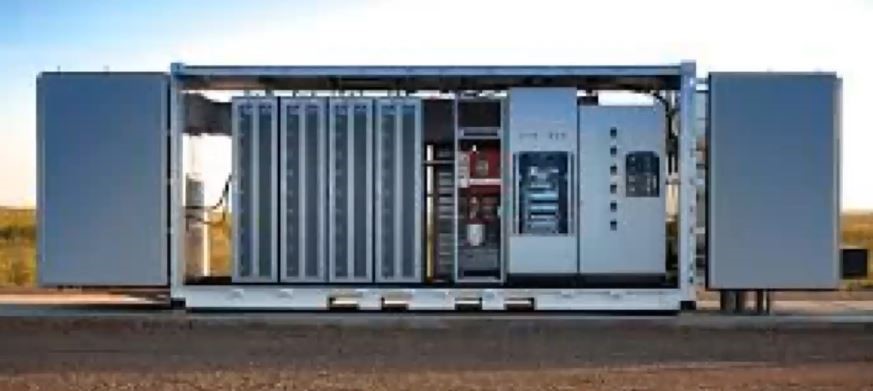
Project Overview
Duration: January 2019 to July 2020
Budget: 1.37 million
Contact: Dr Marnie Shaw, Research Leader, Battery Storage and Grid Integration Program, ANU, marnie.shaw@anu.edu.au
Partners: ARENA, Enova Community Energy Ltd, Repower Shoalhaven, Thinking in Colours Pty Ltd, Totally Renewable Yackandandah, TasNetworks, Evoenergy, Energy Networks Australia and Energy Consumers Australia
Community- or neighbourhood-scale batteries are a class of battery that complements household and utility-scale batteries. These batteries are connected to the distribution network and can provide stored energy for around one hundred homes. Unlike residential batteries, community batteries also potentially unlock the value of battery storage to all energy users, including customers who rent and do not own their own solar panels. Community-scale batteries range in size from a wardrobe to a shipping container and have power capacities of about 1 – 5MW.
Interest in community-scale batteries is growing and not just with local communities. Energy network operators, energy retailers, market operators, consumer advocates and governments are interested in the range of benefits community-scale batteries can offer.
Community models for deploying and operating Distributed Energy Resources (DER)
In this ARENA-funded project, ANU researchers conducted an analysis of community-scale storage, or community energy models, from a technical, regulatory, economic and social perspective. We identified a range of ownership and operation models.
We found that community-scale batteries:
- Can be cheaper than household batteries, due to economies-of-scale.
- Can allow more solar energy to be installed in the suburbs (i.e. increased hosting capacity).
- Can bolster local resilience, including socially, economically and electrically
- Can increase the cost effectiveness of battery storage, by servicing many customers and markets.
In addition to the above project the Battery Storage and Grid Integration Program conducted two related projects:
- Engaging the Broome community on a proposed community battery project for Horizon Power. Led by Dr Hedda Ransan-Cooper, Research Leader, Battery Storage and Grid Integration Program
- Cost benefit analysis into different community battery scenarios for the ACT Government. Led by Dr Marnie Shaw, Research Leader, Battery Storage and Grid Integration Program
Publications
A mutually beneficial approach to electricity network pricing in the presence of large amounts of solar power and community-scale energy storage. Energy Policy, Vol 159, December 2021
Applying responsible algorithm design to neighbourhood-scale batteries in Australia. Nature Energy, July 2021. Full text free version.
Implementing community-scale batteries – Final report
Implementing community-scale batteries: regulatory, technical and logistical considerations
Stakeholder views on the potential role of community scale storage in Australia
Community batteries: a cost/benefit analysis
Operating a community-scale battery: electricity tariffs to maximise customer and network benefits
Find out more:
Neighbourhood-batteries-in-Australia, PV Tech Power journal article
Powering ahead with community batteries, Energy magazine article
ARENA Knowledge Bank: Implementing community-scale batteries
Batteries in the burbs: exploring the potential, Energy magazine article
ARENA Project: Community Models for Deploying and Operating DER
$9.6 million to support distributed energy revolution, ARENA blog
ARENA ACKNOWLEDGEMENT
This project received funding from ARENA as part of ARENA’s Advancing Renewables Program. The views expressed herein are not necessarily the views of the Australian Government, and the Australian Government does not accept responsibility for any information or advice contained herein.
28 May 2021
Battery Storage and Grid Integration Program (BSGIP) research into the burgeoning technology that is neighbhourhood-scale batteries is set to be applied in the Melbourne CBD thanks to a three-way partnership between BSGIP, the Yarra Energy Foundation and electricity network Citipower.
A Memorandum of Understanding was recently signed between the three partners that will enable a trial of neighbourhood batteries, or ‘solar sponges’ to be established in the Melbourne CBD and inner-city suburbs.
“We are delighted to partner with YEF and Citipower on this important initiative that will see our research and development come to life through community batteries across Melbourne, said Andrew Fraser, Leader – Engagement, Standards and Regulation, BSGIP.
“The partnership allows the research and technology we have developed to be applied in real world applications that will create real impacts. The learnings then allow us to better target and refine our research,” said Andrew.
“The ‘Solar Sponge’ trial will specifically draw upon BSGIP’s expertise in developing smart software that will allow the battery to soak up the excess solar generation of participating customers, as well as provide services back to Citipower to support the grid. The smart software allows the full range of benefits to be realised,” said Andrew.
Chris Wallin, Community Battery Project Manager at the Yarra Energy Foundation said, “While there are a range of options for battery hardware, one of the biggest challenges in this trial is actually the software. “The software will underpin how electricity will be tracked from rooftop solar panels to the battery, and how and when it is discharged from the battery back to consumers and to other services.
“ANU has Australia’s leading experts in community batteries and we are very excited and confident they will be able to deliver the platform for what we hope will be a future network of community batteries,” said Chris.
CitiPower General Manager, Electricity Networks, Mark Clarke said, “With residential rooftop solar energy growing, it is a good time to be investigating the potential for connecting batteries to support the whole community. By sharing batteries, all CitiPower customers can benefit even if they don’t have rooftop solar, as batteries could help reduce the cost of building network capacity to accommodate more power and manage localised peak demand, particularly in summer.”
BSGIP researchers have been conducting cutting-edge research into the technical, social, economic and regulatory aspects of community-scale batteries. Community- or suburb-scale batteries are a class of battery that complements household and utility-scale batteries with power capacities of 1 – 5MW. These batteries are connected to the distribution network and can provide stored energy for around one hundred homes. Unlike residential batteries, community batteries also potentially unlock the value of battery storage to all energy users, including customers who rent and do not own their own home.
Find out more about BSGIP research into community batteries here.
